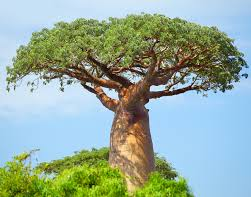Securing the History of Self: What of No History?
- By kwende ukaidi
- •
- 27 Oct, 2024
- •
Celebrating the Great Afrikan History Continuum

Oh what a travesty of catastrophic proportions it would surely be if Afrikan souls were to find themselves void of their own history. To exist in some sort of vacuum detached from the realities of what has been and steeped in unknowingness of any sort of journeying that brought present existence and circumstance would be a bleak and dire condition. To not be able to inform self-determined activity based upon achievements previously made and to build upon those achievements accordingly would be a grotesquely unnatural stunting of Afrikan life progress. To have no historical knowingness of the then to empower history making in the now and in the future not only would castrate the Afrikans’ connection to their history continuum but also render their history continuum null. In the end Afrikan life would suffer immensely and its very existence may become vulnerable or worse.
According to a mainstream source to have no history would mean:
“You would make the same mistakes over and over again. Just as an individual needs a memory, a nation needs a history so it can avoid making the same mistake over and over again”.
Of course, history does not merely hold the keys to lessons in relation to life’s mishaps, it is also about building upon positive progress, continual constructiveness and development. Another mainstream source offers the following detail on the subject:
“Without history, a society shares no common memory of where it has been, what its core values are, or what decisions of the past account for present circumstances. Without history, we cannot undertake any sensible inquiry into the political, social, or moral issues in society”.
Some semblance of study activity in relation to history is key. Indeed, void of necessary learning ignorance can become prevalent. Here, yet another mainstream source offers the following commentary:
“Ignorance of history is certain to result in self-destructive patterns of behaviour in the present and the future”.
Interestingly, one source suggests that:
“only that which has no history can be defined”.
Though interpretations may vary, if applied to a people it could mean that without their history a targeted people could be ‘defined’ or ‘redefined’ by others at will.
If all of these sourced details were to be true in the lives of Afrikan people, then one could conclude that circumstance were dire. Yet, in a state of interruption and disruption where Afrikan souls may be destructively set upon by others that mean the Afrikan ill, the articulations detailed above may not seem strange or unfamiliar. Worst yet, these details in some spheres may appear to describe some sort of ‘normality’.
Hence, it is vital for Afrikan souls to recover and restore their historical knowingness and empower their lives for continual ascension and security accordingly. Only Afrikan souls can do this for themselves in the best ways possible. It matters not whether the Afrikan is located here, there or elsewhere such fundamental self-determined effort surely must be realised. After all, civilisation is not of happenstance.
Afrikan Historia Msimu is an observance period for the duration of the tenth month of the year (so-called October). This is a special time for learning, growth and development of the Afrikan experience in the world. It is a time of spiritual and cultural elevation as Afrikan history is restored to fabric of life in the living knowingness of the then, the now and tomorrow. Great ones of the Afrikan journey are highlighted and the symbols relevant to the time invigorate life in the imperative onward flow of global Afrikan ascendancy. This wonderful observance is a part of the cultural calendar of the Universal Royal Afrikan Nation (URAN).
The Universal Royal Afrikan Nation (URAN) is an Afrikan-centred spiritual and cultural mission for ascendancy that embodies living spiritually and culturally rooted life. To find out more about URAN and its spiritual-cultural mission for liberty and nationhood click here. The exquisite URAN pendant can be obtained online by clicking here.
In his capacity as an Afrikan-centred spiritual cultural practitioner this author is available for further learning in this regard and also for the carrying out of ceremonies such as naming and name reclamation. For details please click here.
Afrikan World Studies programmes are important forms of study in understanding the Afrikan experience. There are a range of subjects covered on these programmes including History, Creative Production, Psychology and Religion. To find out more about these learning programmes please click here. For the video promo for these learning programmes click here.
At nominal cost, also consider acquisition of an a4 laminate poster of articulations by this author when visiting the Yemanja-O establishment to enrol, consult, learn, gather or otherwise.
Also, visit www.u-ran.org for links to Afrikan liberation Love radio programme on Universal Royal Afrikan Radio online.
